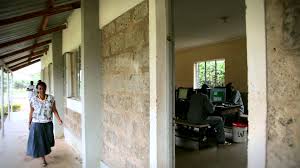Leadership Development for Deputy Wardens and Second in Command
The role of the deputy warden in a correctional facility is integral to its efficient operation and management.
As the second in command to the warden, the deputy warden is delegated full authority and responsibility for carrying out directives of the federal and state courts and the attorney general.
The deputy warden is responsible for ensuring operational continuity, enhancing leadership and management, ensuring the safety and security of both staff and those persons in custody and enforcing policies and procedures to uphold compliance and accountability within the facility.In essence, the deputy warden serves as the anchor in upholding the agency’s mission, fostering a safe and secure environment for all stakeholders and contributing to the successful rehabilitation and reintegration of individuals within the criminal justice system.
Effective leadership, strong decision-making skills, dedication to justice, and accountability are essential in developing the leadership of deputy wardens to ensure that correctional facilities operate effectively.The VILT and e-course will be a valuable resource for deputy wardens, offering guidance on new and ongoing challenges relative to the field of corrections.
The VILT and e-course will incorporate modern aesthetics and technology, including situational narratives, video clips, and engaging activities to provide relevant content on the emerging issues and persistent correctional challenges that an incoming deputy warden/second in command will encounter.
As the second in command to the warden, the deputy warden is delegated full authority and responsibility for carrying out directives of the federal and state courts and the attorney general.
The deputy warden is responsible for ensuring operational continuity, enhancing leadership and management, ensuring the safety and security of both staff and those persons in custody and enforcing policies and procedures to uphold compliance and accountability within the facility.In essence, the deputy warden serves as the anchor in upholding the agency’s mission, fostering a safe and secure environment for all stakeholders and contributing to the successful rehabilitation and reintegration of individuals within the criminal justice system.
Effective leadership, strong decision-making skills, dedication to justice, and accountability are essential in developing the leadership of deputy wardens to ensure that correctional facilities operate effectively.The VILT and e-course will be a valuable resource for deputy wardens, offering guidance on new and ongoing challenges relative to the field of corrections.
The VILT and e-course will incorporate modern aesthetics and technology, including situational narratives, video clips, and engaging activities to provide relevant content on the emerging issues and persistent correctional challenges that an incoming deputy warden/second in command will encounter.
Obtain Full Opportunity Text:
NIC Website
Additional Information of Eligibility:
NIC invites applications from nonprofit organizations (including faith-based, community, and tribal organizations), for-profit organizations (including tribal for-profit organizations), and institutions of higher education (including tribal institutions of higher education).
Recipients, including for-profit organizations, must agree to waive any profit or fee for services.
Foreign governments, international organizations, and non-governmental international organizations/institutions are not eligible to apply.
Proof of 501(c) (3) status as determined by the Internal Revenue Service or an authorizing tribal resolution is required.
NIC welcomes applications that involve two or more entities; however, one eligible entity must be the applicant, and the others must be proposed as subrecipients.
The applicant must be the entity with primary responsibility for administering the funding and managing the entire program.
Only one (1) application will be accepted from a submitting organization.
Full Opportunity Web Address:
http://www.nsf.gov/publications/pub_summ.jsp?ods_key=nsf24596
Contact:
Agency Email Description:
Form and Application information
Agency Email:
Date Posted:
2024-08-16
Application Due Date:
Archive Date:
2024-11-14
Social Entrepreneurship
Spotlight
Rwanda as Social Entrepreneur Fund Beneficiary

The Republic of Rwanda has been picked as one of the six African countries as beneficiaries for a new fellowship fund program designed at supporting social entrepreneurs in tackling issues on food security.

